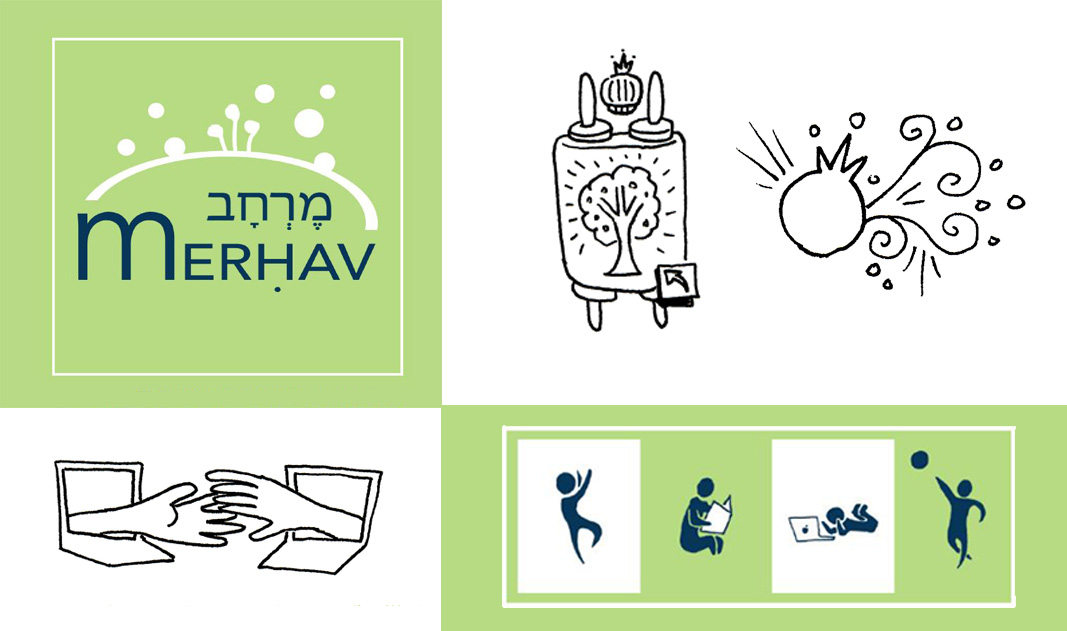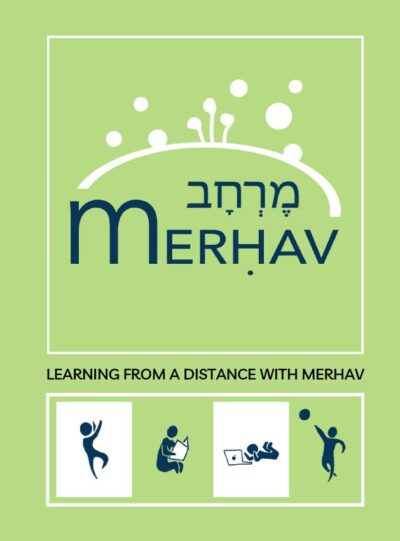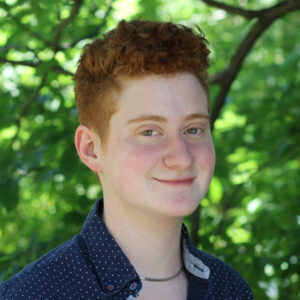At the end of Summer 2020, I received a phone call from an old friend of mine. The pandemic was in full swing and none of us would be returning to in-person classes or Hebrew school teaching positions for the foreseeable future. “I have an idea,” he said. “What if instead of seeing Zoom as an obstacle to Jewish learning, we saw it as an opportunity?”
This friend of mine was Rafi Ellenson, speaking to me in the moments before he became the founder of Merhav: Experiments in Jewish Distance Learning. Intrigued by his question, I became part of a group of five young Jewish educators seeking to create a new genre of pedagogy for a world in which distance-learning was the rule.
In Hebrew, Merhav means “spaciousness” as well as a figurative and literal space. Our group of educators met over Google Hangouts with this wide space of Jewish distance-learning open in front of us. Together, we began to experiment with both the digital and analog worlds to find the best and most creative ways forward in Jewish education for during and after the COVID-19 crisis.
As the Editor of New Voices Magazine and the sole employee of the Jewish Student Press Service, my job demands I wear many hats at once. From fundraiser to administrator, fellowship facilitator to community organizer, one of my favorite roles is that of the Jewish English teacher. Reading the drafts and sharpening the skillsets of the fresh Jewish writers whose articles cross my desk has become my greatest pleasure in my two-year Editorial tenure. Editing done well, however, requires good pedagogy; especially with fledgling writers. In this role, I am as much an editor as I am an educator — and a peer educator, at that. I’m teaching young authors to hone their skills, ask tough questions, and own their Torah. Most of the writers I encounter and mentor through New Voices are dispersed across the diaspora. Instead of working under one roof in the same building, distance is the name of the game. A foray into the mysteries and questions raised by distance learning went hand in hand with my work here at New Voices. Preparing for a hefty autumn workload, I signed on.
Over the course of a few months, each educator taught 3-4 classes, individual sessions on topics of our choosing. I taught classes entitled, “Jewish Comix and Jewish Memory”, “Folktales on the Margins”, and “142 Jewish Writing Prompts” (which yielded this downloadable zine, with those titular prompts). As the Program Director, Rafi encouraged us to try new formats and gimmicks, tools and trials, implementing a more democratic pedagogy that rejected classic notions of top-down education; with the teacher knowing all and the students knowing nothing.
Unfortunately, too many of our notions about Hebrew school and modern Jewish education have taken after non-Jewish, hierarchical models of learning. But in the pandemic, Zoom has the potential to erase classroom hierarchy and help us start from scratch, informed by intentional Jewish values. Squares side by side are far more equalized than a lecturer standing at the front of the class. Asynchronous learning, collaborative google documents, mailing packages to students, and chat-box experiments became staples to our lesson plans. The Jewish world could use a reset (or a rethink) about how we teach and learn, especially in the 21st century. Just as Torah is something that the Jewish people all reveal together, we tried to create educational experiences that reflected the notion that all of us are knowers, seeing knowledge as a group project: something we’re building together.
After those months of trials and some time spent reflecting on what we’d learned in our digital classroom laboratories, we decided to create a resource, a little handbook guide filled with our best-practices. That book is entitled “Learning from a Distance with Merhav” and is now available for free download or donation here.
This book is filled with tips and tricks for expanding your toolbox as an educator, facilitator, counselor, or organizer teaching across time and space. This project is dedicated to all of those who are aspiring to explore the new space of Jewish education unfolding before us. It’s our hope that Jewish educators from all stripes can raise more sparks from our gleanings. May we all see this new era of spacious education as an opportunity for revelation.
You can download “Learning from a Distance with Merhav” at the link here and follow Merhav: Experiments in Jewish Distance Learning on social media by clicking here.


